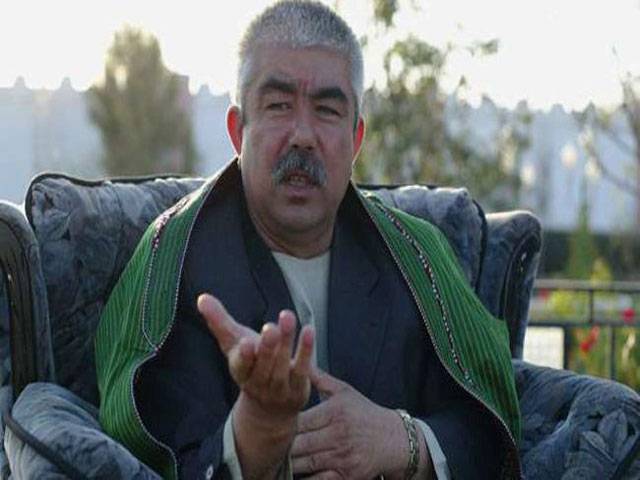NEW YORK - Afghanistan’s Vice President Abdul Rashid Dostum has been denied a US visa for his alleged war crimes, including the killing of hundreds of Taliban prisoners by his militia, according to an American media report.
Dostum, a leader from the ethnic Uzbek minority, who was once described by US State Department as “the quintessential warlord", is the second-ranking official in Afghanistan.
Though he was eager to visit Washington and discuss how best to overcome the Taliban, US officials found themselves in the unusual position of threatening to deny him a visa this month, The New York Times reported.
The message was passed to the Afghan government days before Dostum was to leave for a trip to New York and Washington, the newspaper quoted multiple Afghan and US officials as saying.
To avoid a “humiliating public spectacle”, the Afghan government quietly cancelled Dostum’s visit, the report said.
Dostum told Voice of America on Saturday that the tenuous security situation in Afghanistan had required him to cancel the trip, which was to include an address to a special session of the UN General Assembly on narcotics trafficking.
“I personally intend to visit as soon as the situation here allows,” Dostum was quoted as saying. He said he had many friends in Washington - “I am well acquainted with our Pentagon friends and Congressmen” - and that he would tell them how things were in Afghanistan.
“I want to discuss the situation with them,” he said. “They have to take this issue seriously. Otherwise, it might get out of control.”
That discussion seems unlikely to happen anytime soon, the Times said, adding Dostum’s inability to secure entry to the United States is in fact a longstanding issue.
In 2013, Congressman Dana Rohrabacher, a California Republican who has known Dostum for decades, personally asked Secretary of State John Kerry to grant him a visa. At the time, Rohrabacher, an avowed anti-Pakistan lawmaker, said he was seeking to bring Dostum to Washington to discuss the war and the future of the Afghan government.
No visa was issued then, and Dostum’s election as vice president the following year has not changed the Obama administration’s view of him or its willingness to let him visit the United States, the newspaper quoted as saying.
The State Department did not comment on the development, saying it could not discuss individual visa cases for privacy reasons.
“But for years, there has been broad agreement among US officials about Dostum, who stands apart for his brutal past even when measured against the alleged crimes and misdeeds of many of the people the US has relied on during the war in Afghanistan,” the report said.
“Dostum’s ascent to the vice presidency of Afghanistan, despite his past, exemplifies a central American failure in a war it is now fighting for the 15th year. In its effort to defeat the Taliban, the US has built and paid for a government that is filled with the kinds of warlords and power brokers whose predatory ways helped give rise to the insurgent movement in the 1990s, and who US officials say pose as much of a threat to the stability of Afghanistan as the insurgents themselves,” it added.
Though Afghan President Ashraf Ghani once described Dostum as a “known killer”, he later courted the warlord to help secure votes from Uzbeks in the 2014 presidential election.
At the outset of the war against the Taliban, Dostum fought alongside Central Intelligence Agency operatives and Special Operations forces to oust the militant group, the report said. Dostum fell out of favour with his US patrons over his open defiance of the new government in Kabul, it added.
President Barack Obama said in 2009 his administration would investigate the allegations of war crimes against Dostum, which centre on the killing of hundreds of Taliban prisoners by his militia in 2001.
UZBEKISTAN WANTS RESTART OF PEACE TALKS
Reuters adds: Uzbek President Islam Karimov said on Tuesday it was important to resume peace talks between Afghanistan's central government and the Taliban movement, adding it was crucial that Russia took part in the talks.
Karimov, whose ex-Soviet nation borders Afghanistan, said: "There is a serious and a real threat of instability spilling over into neighbouring countries and regions".
"Russia has and always had its vital interests in this region," he said after talks with Russian President Vladimir Putin in Moscow. "We believe that attempts to resolve this (Afghan) issue without Russia are unreasoned and precipitous."






